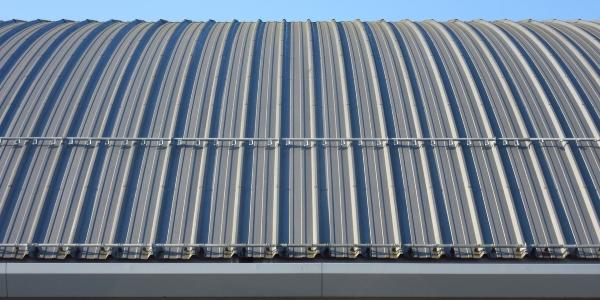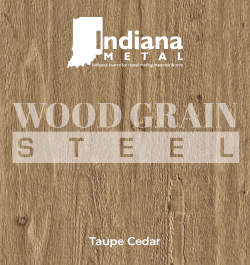UP TO THE MINUTE
Metal Roofs Combat All Types of Weather

By Drexel Metals.
Metal roofs ensure safety from even the most extreme weather cases.
A roof is meant to protect occupants from inclement weather. Most roofs offer protection from typical rain or snow; however, when it comes to more extreme cases of weather most roofing materials will not suffice. A severe weather event can significantly damage a typical roof, and the damage will only worsen over time.
Roofs tend to need more service in locations with extreme climate conditions, as well. A roof in a colder region, for example, will be subject to near constant moisture from regular snowy conditions. As the snow melts, injury or even more property damage is likely to occur when snow falls off the roof.
The best roofing material in extreme climates is metal. Metal is resistant to rain and snow and it will also endure high wind speeds. Roofing issues associated with hotter climates are solved with metal, too. The following points reveal how metal provides superior protection from extreme weather.
Interlocking panels resist high winds
Metal roofs can provide wind resistance of up to 120 miles per hour, which is equal to the gale force of an F2 tornado. Unlike other roofing systems, panelized metal roofing systems extend from eave to ridge and interlock with adjacent panels to minimize the points where gusts of winds can lift and damage the roof. Metal also has a substantial strength-to-weight ratio. This means individual panels can withstand direct wind without increasing the overall weight of a roof. It also means that the places where panels interlock have the strength to endure extreme wind forces.
Weathering tropical storms in style
Tropical storms combine the high winds of tornados with torrential rains. Metal roofs with interlocking panels protect against wind but also offer substantial protection against leaks when installed correctly. With several profile styles and finish colors available, metal roofs can protect without compromising a home or building’s design aesthetic. As such, many building- and homeowners in tropical regions are turning to metal roofs to provide a durable and visually pleasing roof.
Metal roofing systems can also be backed by weather-tightness warranties to offer peace of mind that a roof’s seams will stand up to inclement weather without leaking.
Metal sheds snow quickly and predictably
Sudden rooftop avalanches can damage eaves and gutters around a home. When snow and ice fall from a commercial building’s roof, it easily can cause injury and property damages. Snow and ice can also work against energy efficiency when it accumulates on a roof. Metal roofing systems disperse solar heat across their entire surface to quickly melt snow to help stop rooftop avalanches before they happen and to mitigate the cooling effect of accumulated snow.
In addition, Drexel Metals has developed an optional snow guard system to help control the melting of ice and snow. This system helps metal roofs shed snow in a predictable and consistent manner to sideline the risk of avalanches—and the damages they can cause to gutters, eaves, people and property below. The only system warranted for the life of the roof, Drexel’s snow guard product can provide protection for decades.
Cool roof ratings support energy efficiency in hot climates
Metal roofing systems can also be ideal for hotter climates. When finished with lighter colors, they can be certified to cool roof standards to support sustainable homes. These roofs reflect the majority of the sun’s rays, which reduces the amount of heat retained during sunny days. Further, because metal disperses heat across its entire surface, roofs made with metal panels can cool quickly in the evening, reducing the energy needed to lower the temperature inside a building after the sun starts to set.
Don't fear the forecast
With high strength and premium performance capabilities, metal roofing systems can sideline damage caused by several types of extreme weather. They can also be fitted with optional systems and finished with paint certified to cool roof standards to enhance their resistance to weather. While knowing that metal roofs provide substantial weather-resistance is important, knowing the details can allow roofing contractors to help their customers pick the best materials, profiles and finishes for their particular needs.
Learn more about Drexel Metals in their MetalCoffeeShop® directory or visit drexmet.com.





















Comments
Leave a Reply
Have an account? Login to leave a comment!
Sign In